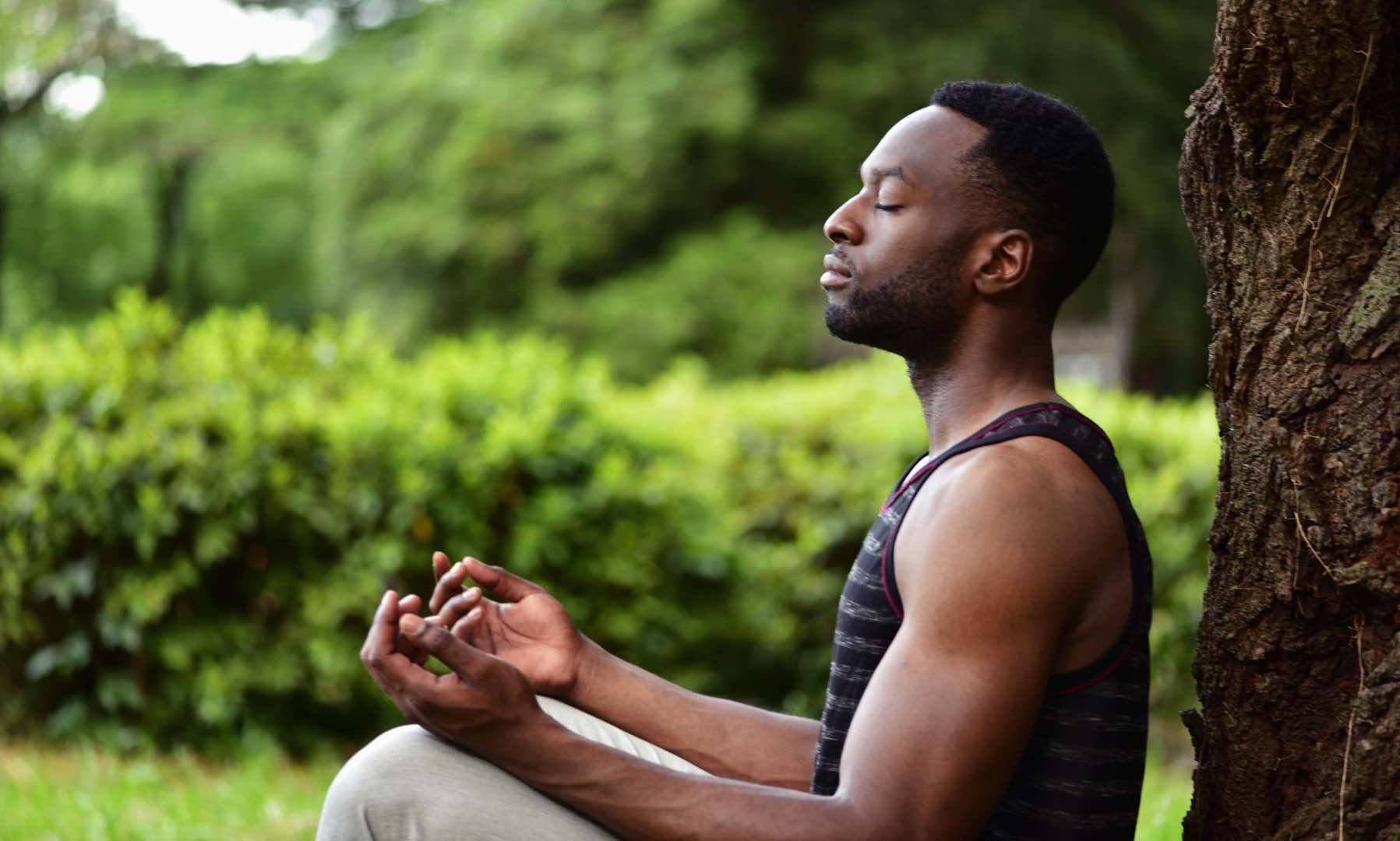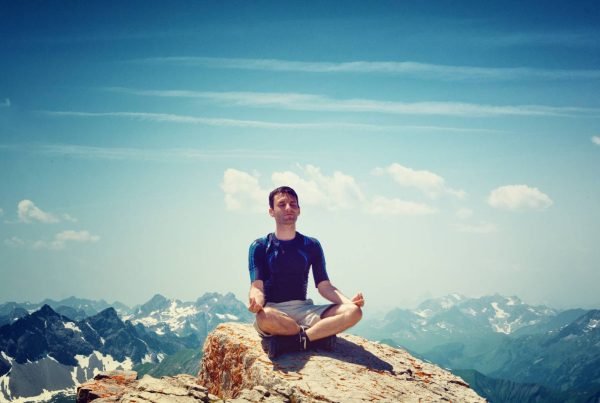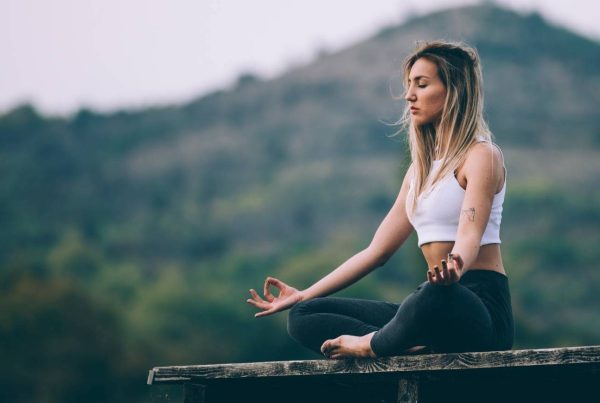Questions will arise whether you’re new to meditating or you’ve been doing it for a while. It’s good to be curious because meditation can be challenging. So, it’s important to wonder how to improve the practice and check that you’re doing it correctly.
One thing that many people wonder is if they should meditate with their eyes open or closed.
Which is better?
There are advantages to meditating with your eyes open and closed. Plus, each has a unique approach. It’s also a personal preference. Some people find it easier to relax and focus with their eyes open, whilst others find it more suitable to keep them closed.
In this post, I’ll explore the benefits of both approaches, helping you to make an informed choice. Plus, I’ll give you a third option to try.
Let’s get started, shall we?
Is It Better to Meditate with Your Eyes Open or Closed?
There is no definitive answer to whether it’s better to meditate with your eyes open or closed. Both have their benefits. Meditation has been around for thousands of years. The practice has various techniques, forms, and approaches. Choosing between them is a personal choice.
I switch between meditating with my eyes open and closed. It depends on how I’m feeling and what I’m trying to gain from my session. More on that later.
To find what works well for you, it’s best to learn in-depth about the options, and then experiment. So, let’s dive deeper now to see the benefits of meditating with your eyes open and closed.
Oh and btw, I’ve also written two informative posts to help you decide whether to use a timer and guide or not. Feel free to check them out by clicking on the links if that’s something you’re curious about.
“Happily, the benefits of training in meditation arrive long before mastery does.”
— Sam Harris
What Are the Benefits of Meditating with Your Eyes Open?
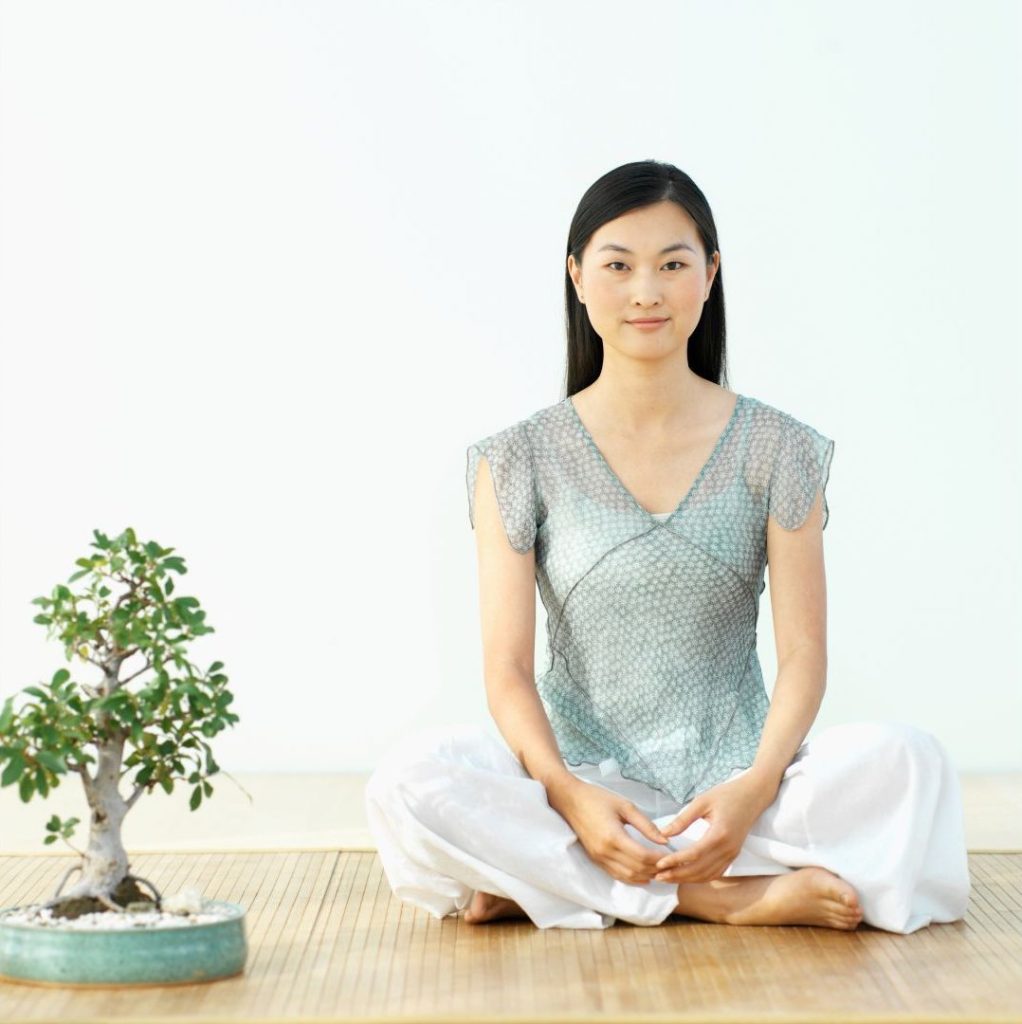
Meditating with your eyes open is a different experience compared to having them closed. Why? Because you’re more engaged with your surroundings. The benefits of meditating like this are as follows:
- Alertness and focus: Meditating with your eyes open helps you to stay alert and focused. There are even meditations that involve using an object to anchor you to the present moment.
- Reduces drowsiness: Being in this state of alertness reduces feelings of drowsiness, which can happen when you meditate with your eyes closed. Particularly if you’re feeling tired.
- External awareness: With your eyes open, you observe your surroundings. Including the sounds, shapes, light, shadows, and movements. Allowing you to cultivate more external awareness of the world around you.
- Mindfulness integration: This external awareness benefits your mindfulness, which involves transforming everyday tasks into mindful practices. This is so you can be present, attentive, and engaged with what you’re doing, instead of being on autopilot.
As you can see, there are good reasons to meditate with your eyes open. Especially related to how you perceive and engage with your external surroundings. In turn, this can enhance your day-to-day life. But how does this compare to meditating with them shut?
Let’s look at that next.
What Are the Benefits of Meditating with Your Eyes Closed?
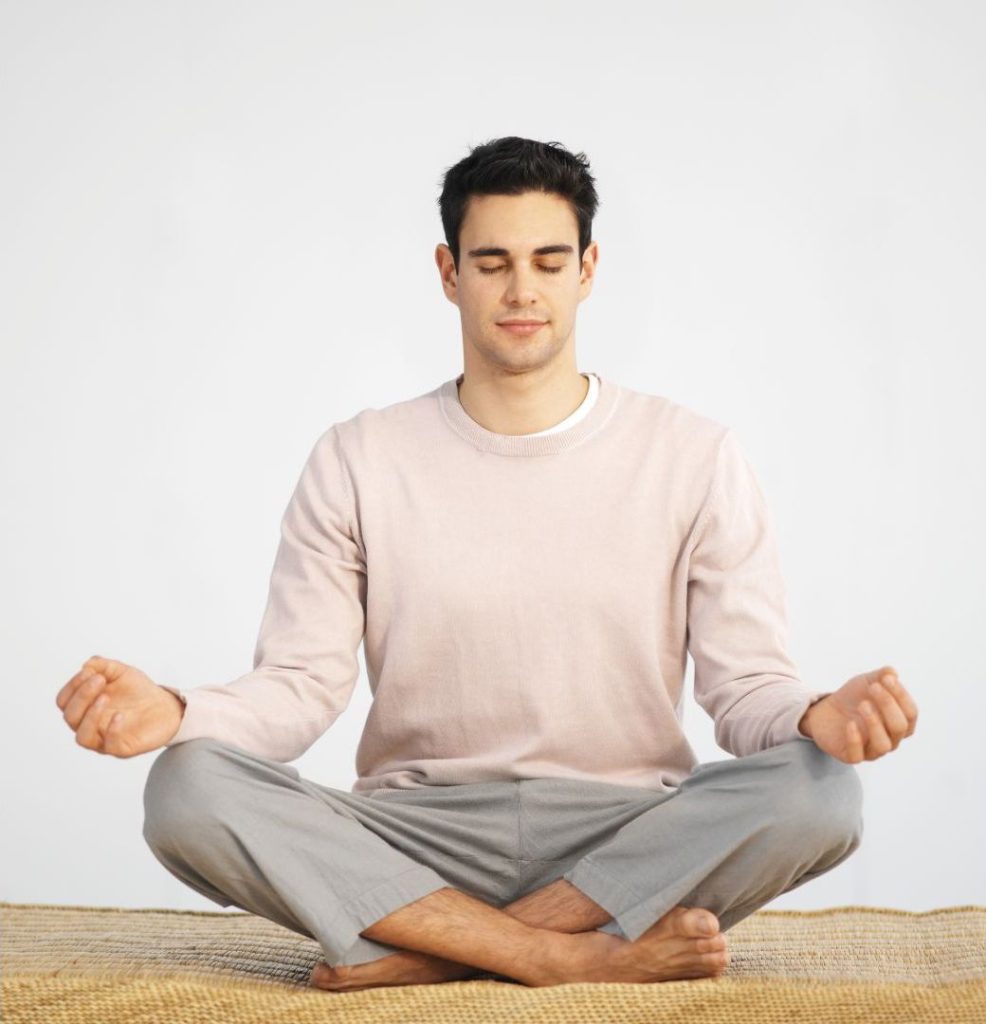
When you meditate with your eyes closed, you’re somewhat shutting out the external world, and diving deep within yourself. Which might sound scary, but it’s not. Trust me. This benefits your practice in the following ways:
- Relaxation: Meditating with your eyes closed can help to relax you’re mind and body. This is particularly useful if you’re trying to go into a deep state of rest, to prepare for sleep.
- Fewer distractions: Without your eyes open, you reduce visual and external distractions. This stimulus can at times hinder your meditation.
- Heightened senses: With no visual distractions, your other senses will amplify. Allowing you to feel, hear, and smell more intensely. This is useful as you can meditate using sounds, music, and incense, or follow guided body scan meditations.
- Internal awareness: As you shut out the external world, you bring more awareness into the internal one. Allowing you to observe your thoughts, sensations, feelings, and emotions deeply. This empowers you to cultivate more self-awareness.
I like to close my eyes when I want to be more in tune with my body. This could be too intense for some people though. Especially if they have trapped emotions that they have been suppressing for a long time. So, please keep that in mind.
Now you know the benefits of both approaches to meditation, but there is a third option.
Any idea what it could be?
Meditating with Your Eyes Half Open
Did you get it? Seems rather simple but meditating with your eyes half-open also has its benefits. It works to give you a balance between internal and external awareness. Facilitating a middle ground between having them open and closed.
In many Buddhist and Zen traditions meditators practice in this way. So, why not give it a go to get a sense of how experienced practitioners meditate?
To do so, lower your gaze downwards with your eyes half-open. Relax your eyelids and keep your focus soft. You can use an object or the centre of your nose to fix your sight on. Then simply continue your meditation as normal.
Which Approach is Right for You?
So, should you meditate with your eyes open or closed? Well, as you can see there is no right or wrong approach. It’s up to you. Both have their benefits which can enhance your life and practice in different ways.
The best thing to do is to experiment.
Meditate with your eyes open, closed, and partially open. Take notes. Write down how you felt, what you experienced, found difficult, easy, and so on. You may prefer one approach over the other, or you might enjoy switching between the three.
Ultimately, it’s about what works well for you and benefits your practice the most. The same goes for other decisions, like whether to use a guide and timer or not.
Finally, remember to enjoy the learning process. Meditation isn’t easy. Be patient and kind towards yourself. It takes time to find the techniques and approaches that resonate with you.
How has your meditation journey been going so far? I’d love to know in the comments below.
Take care of yourselves,
Chris from Mindful Way to Be
